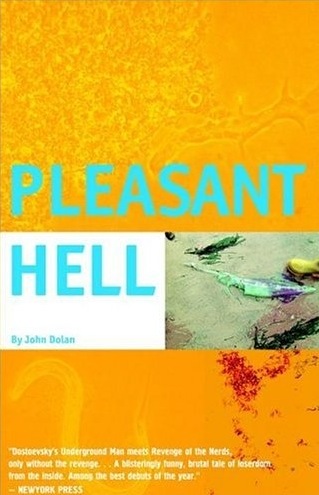Got ninety minutes to kill?
When you’re a young Have in a rich country, you’ve got a glorious wealth of time to waste, and Nick and Norah’s Infinite Playlist is a movie that’s about young Haves, for young Haves. The movie itself is pretty rotten, and that’s part of its charm—the intended audience has got the time and money to blow on it, see.
It’s great watching an endless stream of bad movies when you believe it doesn’t count in real time, because you’ll never age, you’ll never be trading your finite days on earth for small paychecks.
The major critics are lavishing generous praise on the film, too, because they’re graying versions of Haves. They may not be young anymore, but they’ve got cushy jobs, which means a generous layer of fat pads the bones of their mortality. They get paid to watch crap movies full-time and blather on about them, possibly the best job on earth, so it’s no wonder if they achieve an absolutely stupid level of tolerance. This movie is truly insightful, they gibber; it shows us what it’s really like to be young today. Geezers like A.O. Scott of the New York Times even go out of their way to seem familiar with the names of the currently hot bands featured on the soundtrack, just to underscore their solidarity with the Young Haves.
However, when you’re a Have Not—time and money all pinched and precious—this movie is a call to murder on a vast scale requiring several Uzis. Not that anyone will answer the call—we’re all too tired and harassed and discouraged, in part from watching the same old shit repackaged and resold for the fifty-millionth time.
Anyway, the movie’s about this teenage guy Nick and teenage girl Norah (Michael Cera and Kat Denning, both in their 20s) who get together over the course of a long night in Manhattan while trying to find the venue of their favorite band, called Where’s Fluffy? There are a lot of these Long Night of the Young movies (Rebel Without a Cause, American Graffiti, Before Sunrise), and as different as they may be in their particulars, they share the same basic appeal: a nostalgia for privileged youth, who experience angst while hanging around all night in an orgy of indolence and freedom.
In Nick & Norah, the main two kids have nice faces and will wind up together, so you’re more or less waiting for that to happen. They’re aided by his gay friends, playing the fairy-godfather-type roles so often assigned to gay characters—they even choose a push-up bra for the supposedly unalluring Norah. The obstacles to true love are Nick’s mean ex-girlfriend (Alexis Dziena), and Norah’s user ex-boyfriend (Jay Baruchel). Plus Norah has a hard-partying pal named Caroline (Ari Graynor) whose drinking-puking shenanigans embroil everyone in mildly diverting rescue plans.
Caroline’s disgusting piece of gum also gets around, and we follow it as it finds its way all over the filthiest New York City surfaces, including one vomit-filled toilet, and in and out of multiple mouths. Recycling is a big symbolic deal in the film, with everyone wearing each others’ faded clothes and trading mix-CDs and exchanging grubby cell phones and cruising around in communal Yugos and beater vans. We get the idea: this is the new young aristocracy, and their treasure is creative reappropriation. Money, somehow, isn’t supposed to be the issue (a laugh riot if you’ve ever tried to have so much as one drink in Manhattan) and anyone who makes it an issue, such as the user ex-boyfriend, is very, very bad. Director Peter Sollett is all dreamy over this vision of youth; he can’t get enough of their little black hoodies and magic-marker-doodle inventiveness.
But because this is just another romantic comedy, given a youth-audience spin, there’s nothing much going on. It’s got the standard slovenly agenda of shoving the two hetero leads together because they’ve always gotten shoved together in mass entertainment before. Plus there’s the genre’s death-grip on antiquated notions of gender and courtship. For all the loose talk of “friends with benefits,” and other supposedly revolutionary kids-these-days sexcapades, Norah’s secret shame is that she’s only had one boyfriend in her life, and zero orgasms. (This in spite of the fact that she’s the daughter of a top music producer and can get into any club in town for free and knows every wanna-be rocker in New York. You can see how difficult it would be to explore your sexuality under those circumstances.) So it’s Nick, the lamb-like Michael Cera, who will ride to her rescue, clitorally-speaking. Sex without orgasm seems to be replacing virginity as the standard of female purity in romantic comedies. This refers us back to the equally weird and implausible 1950s-‘60s scenarios when audiences were asked to believe that career woman Doris Day was still unbedded at thirty-something, and gay Rock Hudson was the studly answer to a maiden’s prayer.
Calling the lead couple “Nick and Norah” just puts the tin hat on the awkward regression going on here. It refers to Nick and Nora Charles, the model couple for the brave new world, created by Dashiell Hammett in his 1934 detective novel The Thin Man, and famously adapted for film in the same year. Here the allusion doesn’t mean much; it’s just an ironic juxtaposition of a famous-named pair from yesteryear with the contempo-sounding term “infinite playlist.” But the couple in the 1934 film was famous for a reason. They made coupledom look great in a whole new way. They appeared to be equals in worldly aplomb and inclination toward hilarity. They were fast and funny; they took pratfalls and punches. Nora brought the money to the relationship that guaranteed their freedom; Nick provided their ongoing urban adventure in the form of his profession as a detective and his many dicey friends. Instead of a child, which would’ve ruined everything, they had a dog-familiar, Asta, who seemed as savvy as they were, and together the three added up to a utopian vision of earthly happiness.
Nick and Nora, with Asta
They were so influential they helped instigate a new film genre, screwball comedy, which was the scourge of romantic comedy, mocking its sickly reverence for conventional love and marriage, undercutting its His-and-Hers clichés. Why couldn’t it be screwball comedy that hung on forever, kicking mopey ingénues to the curb, shoving romantic heroes out of upper-floor windows? Why do good things not get repackaged fifty-million times?
Just a point to ponder next time you go to the movies.
*****
Read more: romantic comedy, screwball comedy, The Thin Man, Eileen Jones, Fatwah


Got something to say to us? Then send us a letter.
Want us to stick around? Donate to The eXiled.
Twitter twerps can follow us at twitter.com/exiledonline
















Trackback this post